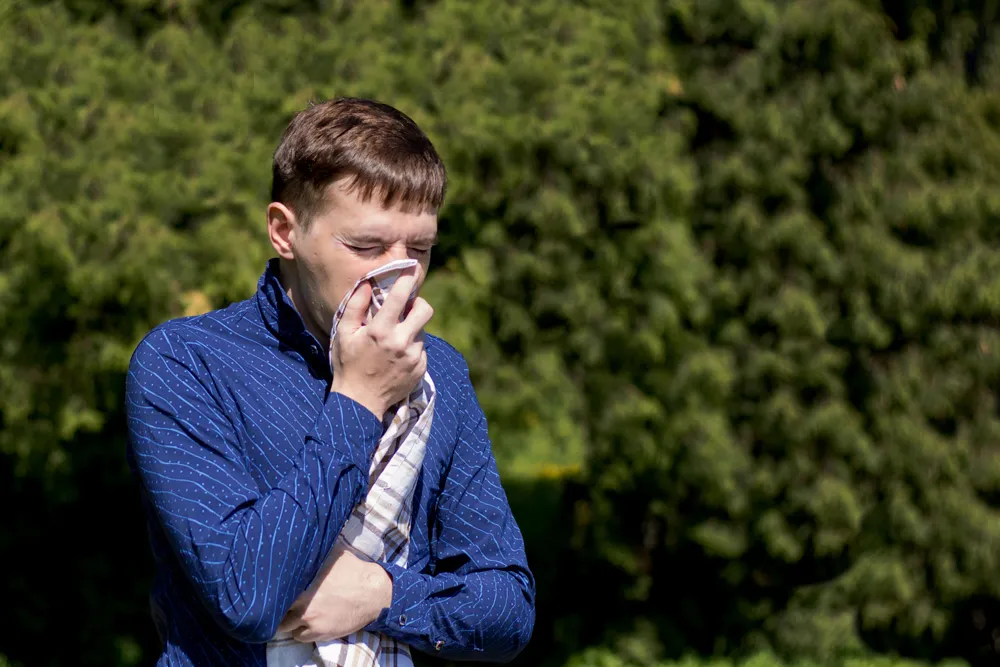Breathing Easy: Managing the Mental Health Impact of Allergies and Asthma
Living with allergies or asthma isn’t just about managing physical symptoms; it’s also about navigating the emotional and mental toll these chronic conditions can take on your daily life.
If you’re coping with frequent wheezing, shortness of breath, or the constant worry of exposure to allergens, you’re not alone. Millions of patients experience anxiety, stress, and even depression as they try to keep symptoms under control.
But the silver lining is that there is hope and support.
The Mind-Body Connection in Asthma and Allergies
When your breathing is restricted, your entire body reacts, not just physically, but emotionally. It’s common to feel anxious during an asthma attack or after a severe allergic reaction.
Over time, this anxiety can build into a pattern of chronic stress, particularly if you’re avoiding places or activities you once enjoyed out of fear of triggering symptoms. This can lead to social withdrawal and reduced participation in different activities, leading to feelings of isolation, frustration, or helplessness in children and adults.
Struggling to breathe or reacting to allergens can be frightening and exhausting. The unpredictability of symptoms can add to this burden, often leading to sleep disturbances, burnout, or feelings of guilt and helplessness.
Signs of Mental Health Strain to Watch For
If you or someone you care for has asthma or allergies, it’s important to watch for signs that the emotional impact is becoming too heavy. These can include:
- Persistent feelings of worry, sadness, or hopelessness
- Trouble sleeping or excessive fatigue
- Avoiding activities due to fear of symptom flare-ups
- Feeling overwhelmed by medication schedules or lifestyle restrictions
- Changes in appetite or weight
- Increased irritability or mood swings
Recognizing these signs early allows you to seek the proper support and take proactive steps toward your emotional wellness.

Practical Tips to Support Mental and Emotional Well-Being
1. Prioritize Symptom Control
The better your physical symptoms are managed, the less stress they tend to cause.
Keep your asthma action plan updated, do your best to avoid known triggers without compromising your quality of life, and consistently follow your prescribed treatment regimen.
2. Explore Biologic Therapy
Biologic treatments have transformed the lives of many people living with moderate to severe asthma and allergic conditions.
These targeted therapies address the underlying immune system mechanisms that cause inflammation, helping reduce flare-ups and the need for rescue medications.
With fewer interruptions to daily life and better symptom control, you will experience a noticeable improvement in your overall quality of life, including emotional well-being.
3. Talk About It
Don’t underestimate the power of open communication.
Share your feelings with someone you trust, whether a friend, family member, healthcare provider, therapist, or support group.
Mental health professionals can also offer strategies like cognitive-behavioral therapy (CBT) to help you manage anxiety or depression.
4. Create a Supportive Environment
Being prepared can reduce physical and emotional strain for the patient or caregiver.
Ensure emergency medications are always accessible, keep allergen-free zones in your home, and educate others (like teachers or employers) on how to respond in case of a reaction.
5. Practice Mind-Body Techniques
Techniques like deep breathing, mindfulness, yoga, and meditation can help regulate your stress response and promote relaxation.
These are especially helpful during or after symptom flare-ups when anxiety tends to spike.

You Deserve to Breathe Easy
Allergies and asthma may be lifelong conditions, but they don’t have to rule your life.
With the right treatment plan, including the potential benefits of biologic therapy and a focus on emotional wellness, you can regain control and live a more balanced, fulfilling life.
If you’re struggling, know that help is available. Talk to your doctor about your symptoms, both physical and emotional, and ask whether biologic therapy might be right for you.
You’re not alone on this journey; better breathing and peace of mind are within reach.
